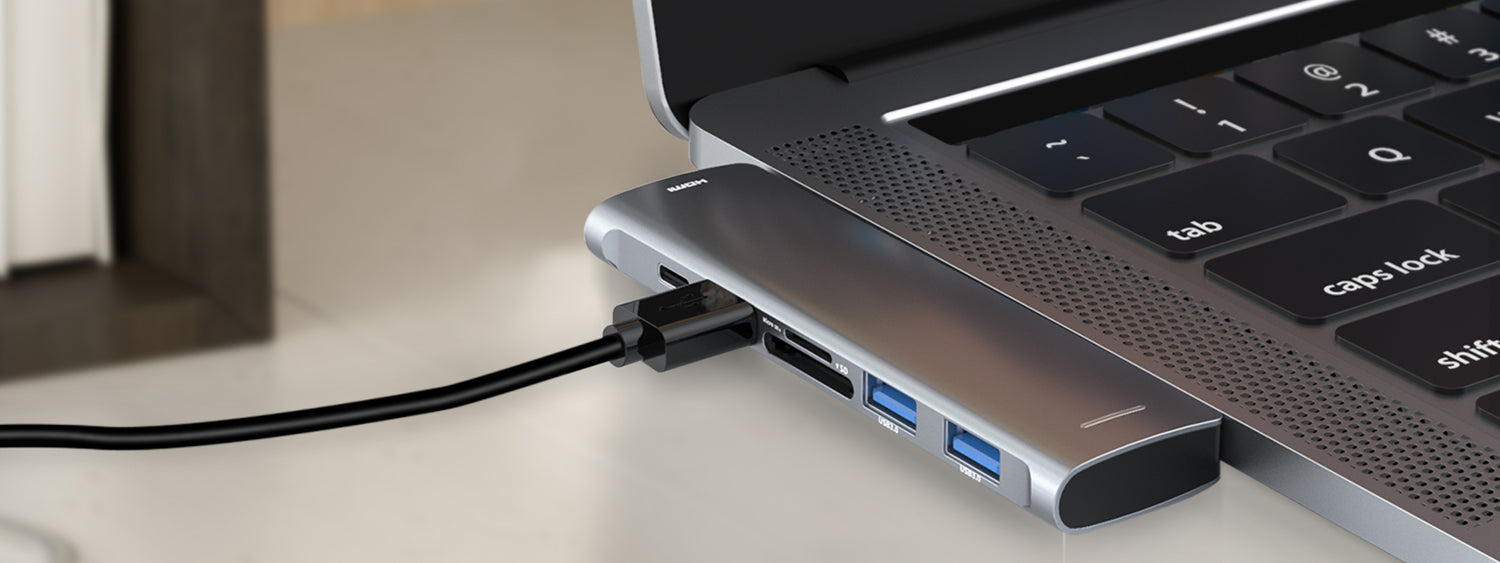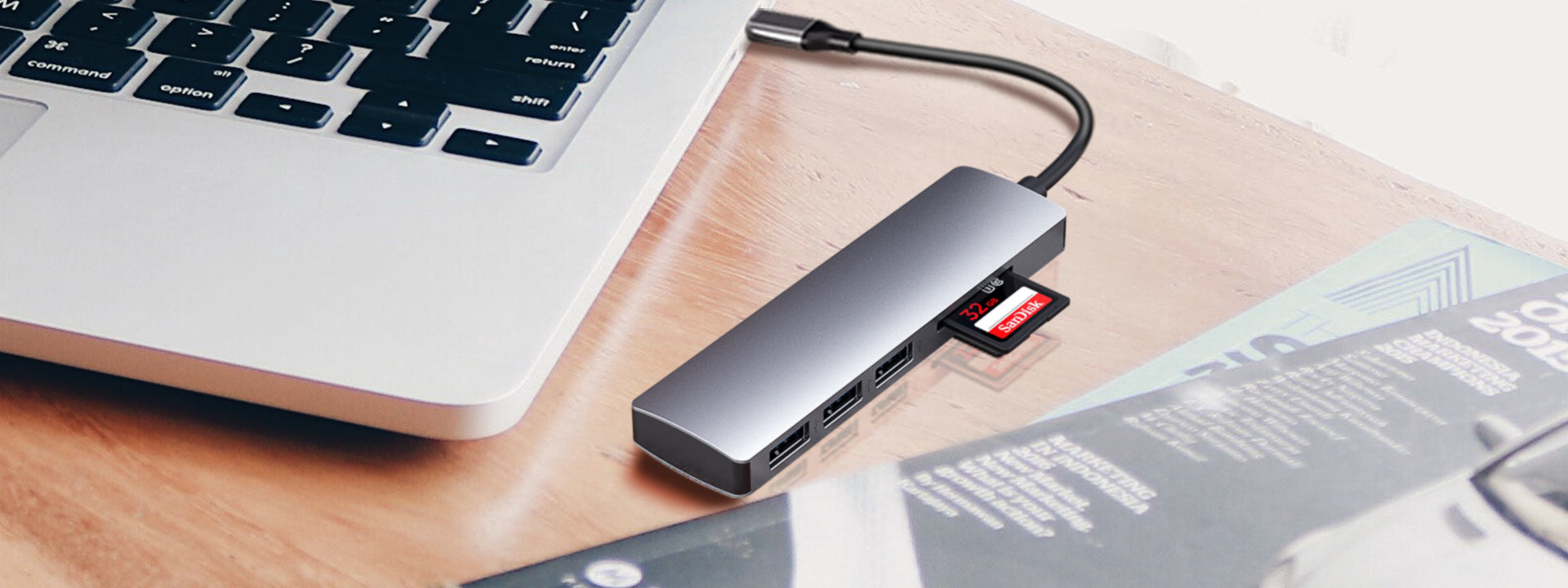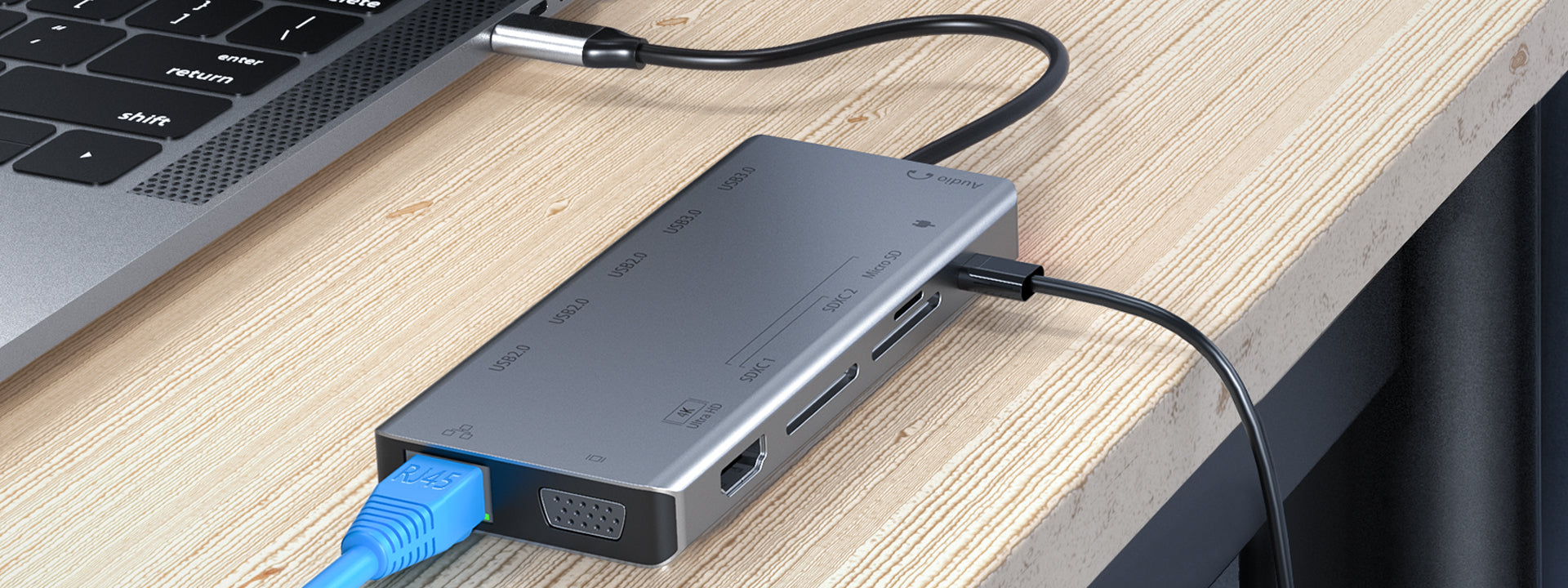Nowadays, powerful technology pushes electronics more and more portable. While maintaining a thin and compact body, the port of the mobile device is slowly changing, leaving only a few USB-C or Thunderbolt 3 ports. In order to meet the needs of connecting more external devices, hubs and docking stations are the solutions. A hub is not the same as a docking station, they are different product types, but both play a big role in organizing and connecting various peripherals. Since the docks and USB hubs are similar in appearance and some functions, it is not surprising that they are often confused by people. Despite this, they are all very practical tech tools and unique in their own ways and have their individual importance. Let's grasp a clear understanding of the differences between hubs and docks, then choose the one that is more suitable for you.
What is Docking Station?
The docking station is like a powerful workstation that expands various ports for your mobile devices. Simply connect it to your laptop, available in multiple connections, including DisplayPort, Mini DisplayPort, HDMI, DVI, VGA, and even Gigabit Ethernet, audio output, SD/TF card reader, and so on. Besides, cable converters or hubs that require mains power are also docking stations. The docks are generally connected via Thunderbolt 3, USB-C or USB-A, and can provide workstation power for the entire work setup. This power supply method is for the docking station itself (not the laptop) and can be charged quickly. Compared with hubs, docking stations have more versatile ports to connect more devices in the workplace.
Take RayCue 12-in-1 USB-C docking station for learning more, massive ports directly expand your laptop to set up a powerful and efficient workstation: UHD 4K dual HDMI ports, three USB 3.0, single USB 2.0, PD fast charging, 1080P VGA port, Gigabit Ethernet port, 3.5mm audio port, and SD/TF memory card port, 12 ports can do more! It acts as a perfect work assistant which brings more convenience, perfect for daily work and home entertainment use. In addition, this dock is designed to be compact and portable, easily take it on the go.
What is Hub?
Most Ultrabooks and laptops have limited ports, and the universal connection solution is to use a hub. The hub easily expands the number of ports on the device, whether it is USB-A or USB-C, it also can be used as a splitter. Expand more USB ports for your laptop or PC to connect peripherals, a hub allows interacting with multiple USB devices simultaneously, such as mice, keyboard, printer, USB drives and portable storage drives. Common types include USB 2.0 hub, USB 3.0 hub, and USB 3.1 hub (USB-C hub), and there are also some variants where USB-A and USB-C male ports coexist. High-end USB hubs also include power supply and Ethernet connections.
When you use a MacBook Pro or MacBook Air, you can use a hub to make the best use of your device. Like this RayCue hub, it provides the ability to use Thunderbolt 3 port, SD/TF card reader slots, and 3 USB 3.0 ports, which perfectly expands the usability of your laptop. The hub supports connecting the USB mouse, USB keyboard, USB printer, or other USB devices while inserting the U disk, which better meets the needs of multiple USB ports in the workplace.
Like a power strip for your computer, a USB hub’s main purpose in life is to let you plug more stuff in. It is not only suitable for ultrabooks or laptops but also useful for desktop PCs. While some hubs support audio and video, some people need to step up to a docking station.
Hubs vs Docks: Which Do You Buy?
After getting to know their differences and features, you may have some ideas about which one is exactly you want and need. Actually, it is quite easy to decide the one best for you on the grounds of your needs and purposes. The docking station makes your laptop as powerful as a desktop computer, providing a more comprehensive connection for the office or smart home, while the hub is more focused on expanding multiple ports that can be connected to USB devices and allowing these devices to operate at the same time. The price of the former will be much more expensive than the latter, choose the best product type within our budget. More hubs and docks info is available on the RayCue website.
Previous: Understanding the Different Port Types of USB Hub/Dock




Leave a comment
All comments are moderated before being published.
This site is protected by hCaptcha and the hCaptcha Privacy Policy and Terms of Service apply.